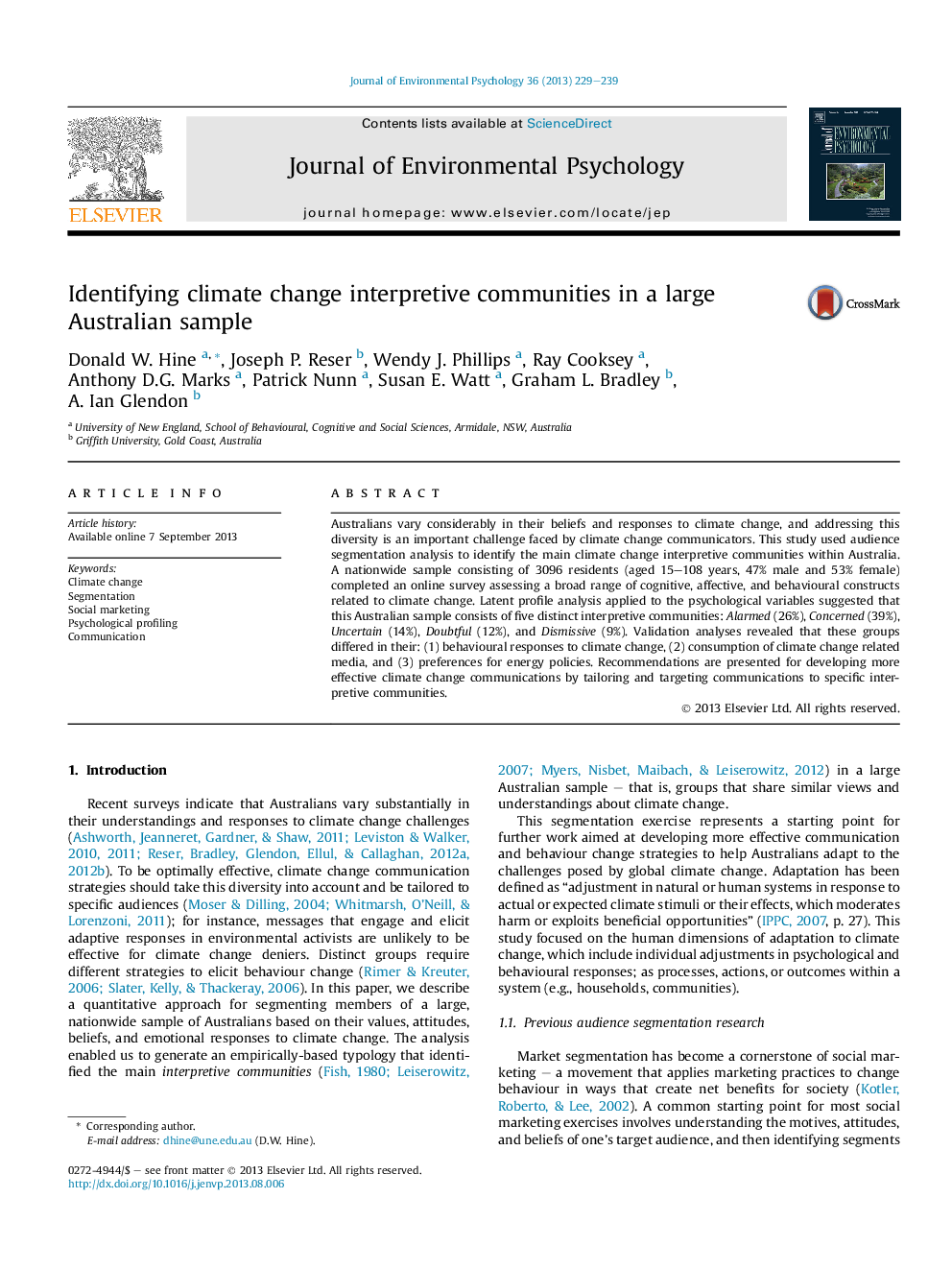| Article ID | Journal | Published Year | Pages | File Type |
|---|---|---|---|---|
| 7246362 | Journal of Environmental Psychology | 2013 | 11 Pages |
Abstract
Australians vary considerably in their beliefs and responses to climate change, and addressing this diversity is an important challenge faced by climate change communicators. This study used audience segmentation analysis to identify the main climate change interpretive communities within Australia. AÂ nationwide sample consisting of 3096 residents (aged 15-108 years, 47% male and 53% female) completed an online survey assessing a broad range of cognitive, affective, and behavioural constructs related to climate change. Latent profile analysis applied to the psychological variables suggested that this Australian sample consists of five distinct interpretive communities: Alarmed (26%), Concerned (39%), Uncertain (14%), Doubtful (12%), and Dismissive (9%). Validation analyses revealed that these groups differed in their: (1) behavioural responses to climate change, (2) consumption of climate change related media, and (3) preferences for energy policies. Recommendations are presented for developing more effective climate change communications by tailoring and targeting communications to specific interpretive communities.
Related Topics
Social Sciences and Humanities
Psychology
Applied Psychology
Authors
Donald W. Hine, Joseph P. Reser, Wendy J. Phillips, Ray Cooksey, Anthony D.G. Marks, Patrick Nunn, Susan E. Watt, Graham L. Bradley, A. Ian Glendon,
